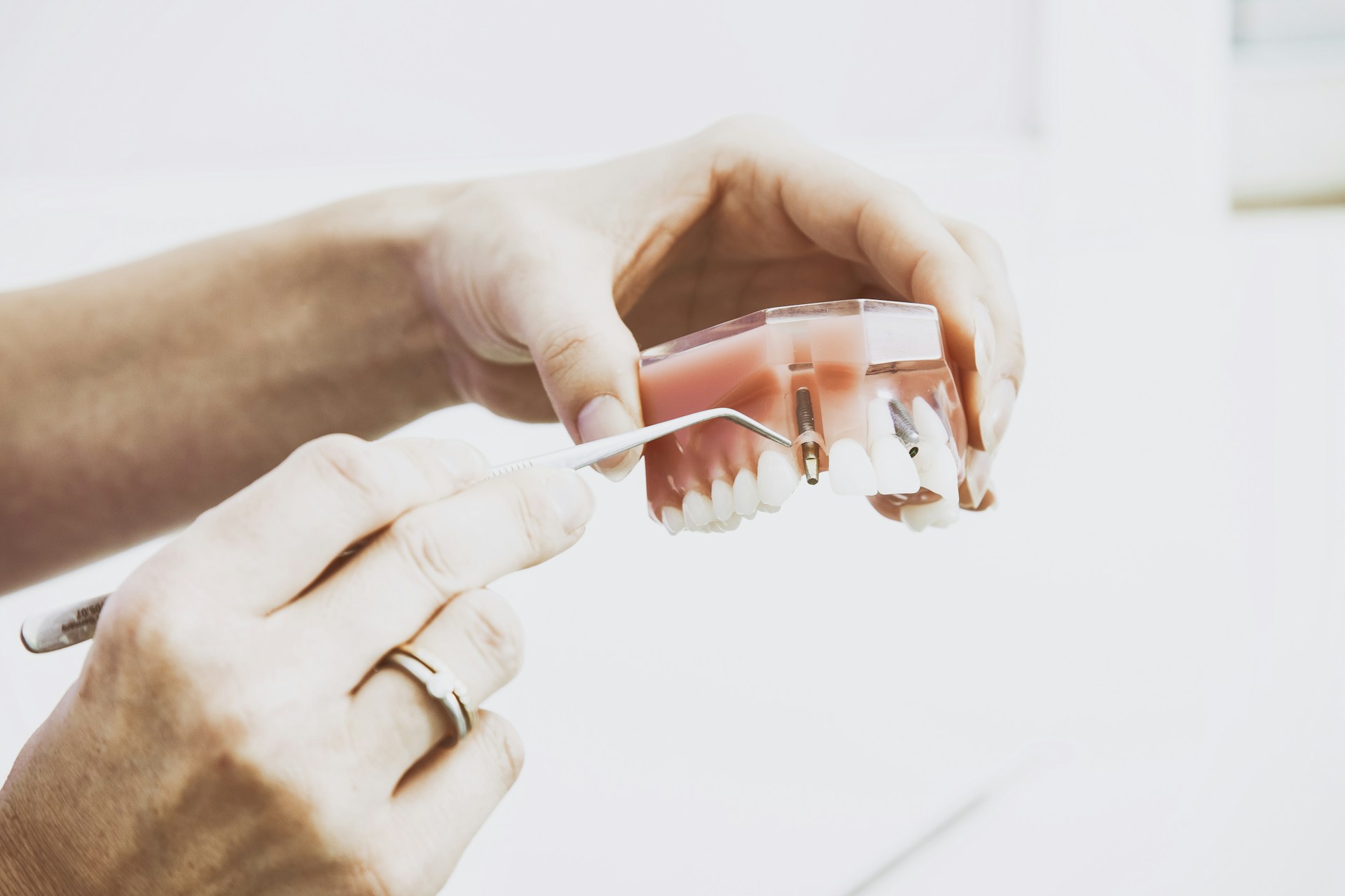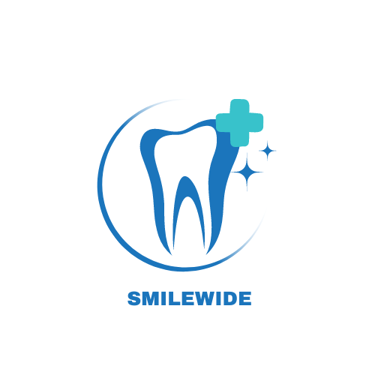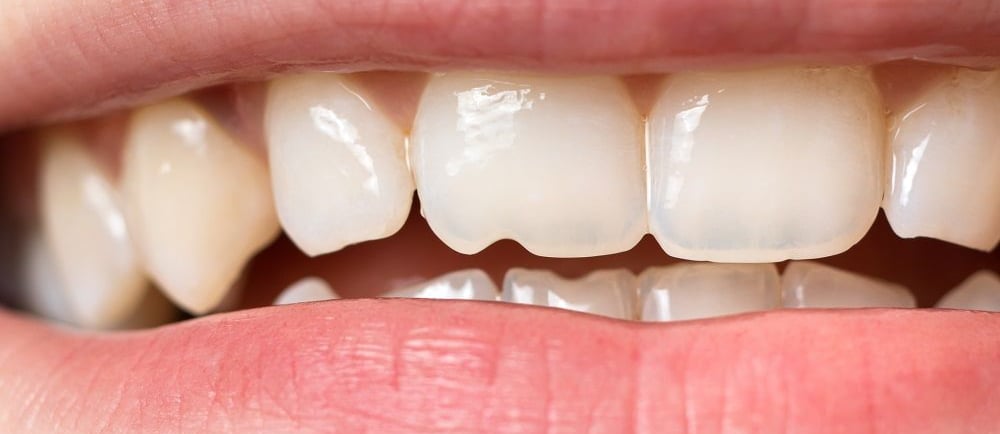SMILE- It costs nothing !!!
Can Tooth Enamel Regrow? Key Factors & Protection Tips
Explore the possibilities of tooth enamel regrow and understand the key factors influencing its health. Discover effective methods to protect and maintain your enamel for a healthier smile.
12/6/2024
Does Enamel Regrow?
Tooth enamel is a critical component of dental health, protecting teeth from wear, decay, and damage.
However, enamel loss has become a widespread concern, with many people wondering, does enamel regrow? This question sparks discussions about tooth enamel repair, what tooth enamel is, and how to restore tooth enamel effectively.
What is Tooth Enamel?
Tooth enamel is the thin, outermost layer covering each tooth.
It is the hardest substance in the human body, even stronger than bone, and is composed mainly of minerals, such as hydroxyapatite.
Its primary purpose is to shield the inner layers of the teeth from damage caused by acids, bacteria, and physical wear.
Why is Enamel in the Human Body So Important?
Enamel acts as a durable barrier, preventing various dental problems:
Protection Against Decay: It prevents harmful bacteria from penetrating the tooth’s inner layers.
Reduction of Tooth Sensitivity: A strong enamel layer insulates nerves in the tooth, reducing sensitivity to hot, cold, or sweet stimuli.
Maintenance of Tooth Structure: It helps teeth retain their shape and strength during chewing.
However, tooth enamel lacks living cells, meaning it cannot heal or regrow once it is damaged or lost.
Related : Enamel Hypoplasia
What Causes Enamel Loss?
Enamel can wear away over time, leading to weaker teeth prone to decay, discoloration, and sensitivity. Some common causes of enamel loss include:
1. Acidic Foods and Drinks
Frequent consumption of foods like citrus fruits, carbonated beverages, or vinegar-based dressings can erode enamel due to their high acid content.
2. Poor Oral Hygiene
Plaque buildup releases acids that erode enamel. Inadequate brushing and flossing exacerbate the problem.
3. Teeth Grinding (Bruxism)
Grinding teeth, especially at night, physically wears down enamel over time.
4. Overbrushing
Brushing too hard or using a toothbrush with stiff bristles can gradually wear away enamel.
5. Dry Mouth (Xerostomia)
Saliva neutralizes acids and washes away food debris. A lack of saliva allows acid to linger on teeth, increasing the risk of enamel erosion.
Related : Treatments for tooth sensitivity
Can Tooth Enamel Regrow?
Unfortunately, tooth enamel does not regenerate once it is lost.
Unlike other tissues in the body, enamel does not contain living cells, meaning the body cannot repair or regrow it naturally.
Does That Mean Tooth Enamel Repair is Impossible?
Not entirely! While enamel cannot regrow, it is possible to remineralize and strengthen the remaining enamel.
This process involves restoring minerals to the tooth surface to improve its density and resilience.
How to Restore Tooth Enamel?
Although full enamel regrowth is impossible, you can take steps to restore and protect your remaining enamel.
These strategies focus on tooth enamel repair and remineralization:
1. Use Fluoride Products
Fluoride strengthens teeth by promoting remineralization. Using fluoride toothpaste or mouthwash can replenish lost minerals and protect enamel from further damage.
2. Try Hydroxyapatite Toothpaste
Hydroxyapatite, a key mineral in tooth enamel, can help rebuild the surface of weakened enamel. Toothpastes containing this ingredient are excellent for repairing enamel.
3. Eat Enamel-Friendly Foods
Consume foods rich in calcium and phosphorus, such as milk, cheese, nuts, and leafy greens. These minerals strengthen teeth and neutralize acids in the mouth.
4. Drink Plenty of Water
Water helps wash away food particles and bacteria, diluting harmful acids that cause enamel loss.
5. Limit Acidic and Sugary Foods
Cutting back on acidic and sugary foods reduces the risk of enamel erosion. Use a straw when drinking acidic beverages to minimize direct contact with teeth.
6. Seek Professional Dental Treatments
Dentists offer treatments like fluoride varnishes, dental bonding, or veneers to repair and protect enamel. Sealants can also shield teeth from acids and plaque.
How to Prevent Enamel Loss
The best way to address enamel issues is to prevent its loss in the first place. Here are some essential tips:
1. Adopt Proper Brushing Techniques
Use a soft-bristled toothbrush and brush gently in a circular motion to avoid damaging enamel. Replace your toothbrush every 3-4 months.
2. Chew Sugar-Free Gum
Sugar-free gum stimulates saliva production, which helps neutralize acids and remineralize enamel.
3. Rinse After Meals
Rinsing your mouth with water after consuming acidic or sugary foods reduces acid exposure and helps protect enamel.
4. Wear a Nightguard
If you grind your teeth at night, a nightguard can prevent physical wear on enamel.
Signs of Enamel Loss
Recognizing enamel erosion early can help you take action to protect your teeth. Look out for:
Increased tooth sensitivity to hot, cold, or sweet foods.
Yellowing teeth due to exposed dentin underneath the enamel.
Chipping or cracking of teeth.
A rough or uneven texture on the tooth surface.
If you notice these signs, consult your dentist to discuss options for tooth enamel repair.
Enamel in the Human Body: A Key Defense
The enamel in the human body acts as a critical defense mechanism for teeth, ensuring they can withstand daily wear and tear.
Without proper care, enamel loss can lead to severe dental issues, including cavities, infections, and tooth loss.
While tooth enamel does not regrow naturally, there are ways to repair and strengthen it.
Understanding what tooth enamel is, how enamel works in the human body, and how to restore tooth enamel can help you maintain a healthy smile.
By adopting good oral hygiene, making enamel-friendly dietary choices, and consulting your dentist for professional treatments, you can protect your enamel from further loss and enjoy long-term oral health.
Enamel may not regenerate, but with the right care, you can keep your teeth strong, healthy, and free from damage.

Contact Smiles
drdeepi15@gmail.com
Dr. Deepika B.D.S
© 2025 SmileWide Dental. All Rights Reserved.
Have doubts ..?


